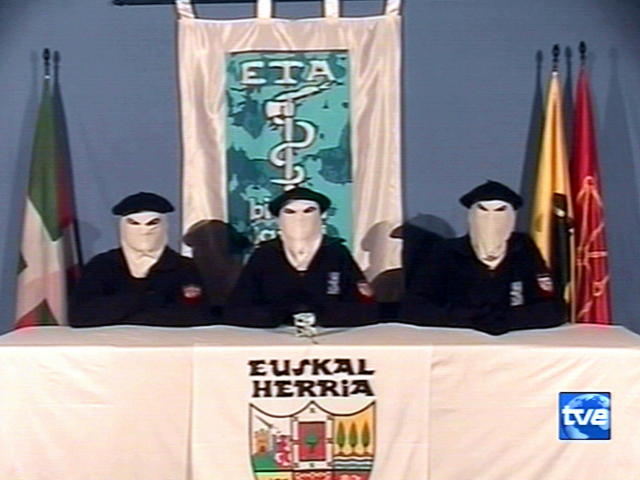PARIS (AP) — The Basque separatist group ETA has formally given French authorities a list of eight locations of its caches of weapons, ammunition and explosives in a crucial move toward disarmament. The Spanish government called on the rebels to “ask forgiveness from its victims, and disappear.”
ETAFrench Interior Minister Matthias Fekl said a police operation was underway Saturday to find and search the arms caches.
“It’s a great step, an unquestionably important day,” Fekl said.
Spain “will not make any evaluation of the handing over of weapons today by ETA until they have been analyzed by French authorities and justice,” Interior Minister Juan Ignacio Zoido said in a televised statement.
“The government will not alter its position: terrorists cannot hope to receive any special treatment from the government nor immunity for their crimes”, the statement said.
It called on the ETA to “announce its definitive dissolution, ask forgiveness from its victims, and disappear”.
Representatives of the self-appointed Peace Artisans activist group, acting as mediators in the disarmament process, told reporters that ETA surrendered 120 firearms and three tons of explosives and ammunition.
“We hope that with this the movement can move forward to a long-lasting peace in the Basque country,” activist Mixel Berhokoirigoin said.
He said fellow Peace Artisans were deployed at each location until French authorities arrive to take possession of the weapons.
The International Verification Commission said in a statement Saturday that the list of caches given to them by the Peace Artisans group “was immediately conveyed to the relevant French authorities, who will now secure and collect ETA’s arsenal.”
The caches are in southwestern France, a region historically used as a support base by ETA.
Inactive for more than five years, ETA had said it would hand over its arms, a historic step following a 43-year violent campaign that claimed 829 lives, mostly in Spain.
Disarmament is the second-to-last step demanded by France and Spain, which want ETA to formally disband. The organization hasn’t said whether it would.
The president of the Basque Country’s regional government in Spain called the disarmament an “important step with historical value.”
“The disarmament is devoid of any epic but has an ethical significance, it certifies that there should have never been any ETA victim,” Inigo Urkullu said in a public statement. “All the victims are part of this success,” he added.
When speaking about victims, Basque nationalists usually take into account the ETA militants and supporters killed during the “dirty war” led by government-sanctioned counter-terrorism groups.
The president of the Victims of Terrorism Foundation, Maria del Mar Blanco, whose brother was kidnapped and killed by ETA in 1997, called for “nobody to rewrite history.”
“The bad guys are still the bad guys. The good guys – we the victims of terrorism – are still the good ones,” Blanco told Spanish national television.
Javier Maroto of Spain’s ruling Party Popular said the disarmament is “a step forward, but it’s not enough”.
In contrast, the pro-independence leader of Sortu, a Basque separatist party linked to ETA, Arnaldo Otegi said “the armed struggle is over, but the fight for the same ends goes on.”
“As of tomorrow we need to keep working on the issues of the prisoners, the victims and the demilitarization of the country,” he said.
Otegi and many Basque separatists have pushed for convicted ETA members to serve their jail time closer to their homes, not scattered around Spain. The Spanish government has refused.
There’s also an issue of what might happen to a handful of ETA members still on the run. Hundreds of killings also remain unsolved and the arms could help lead authorities to some of the perpetrators.

COMMENTS
Please let us know if you're having issues with commenting.